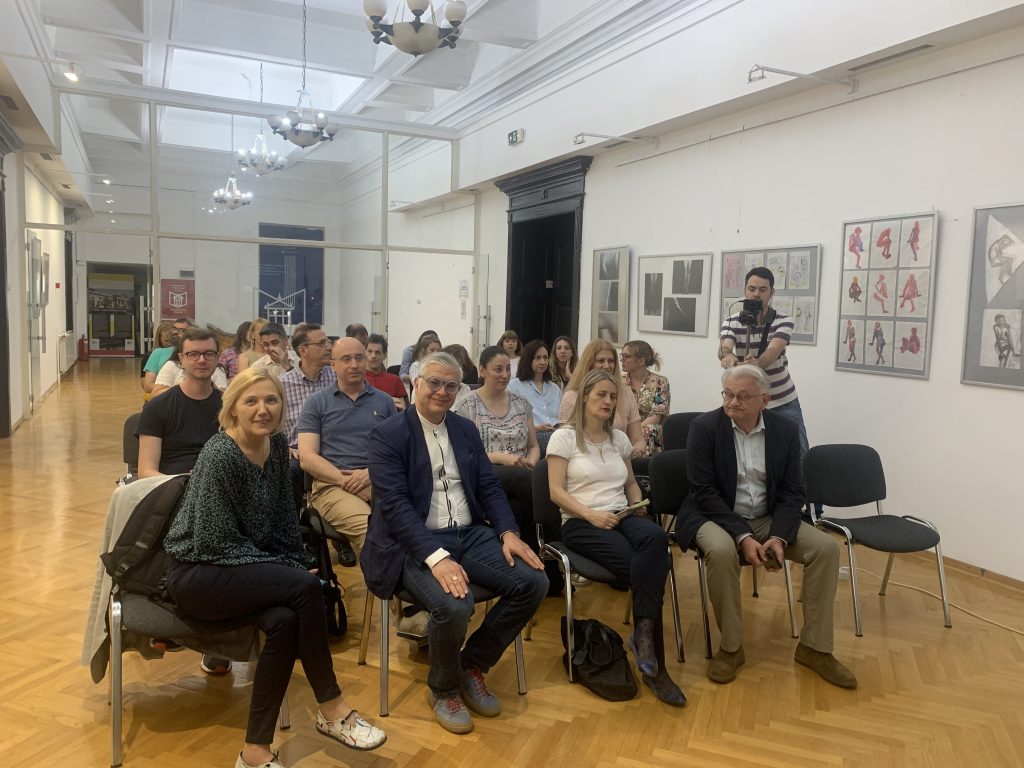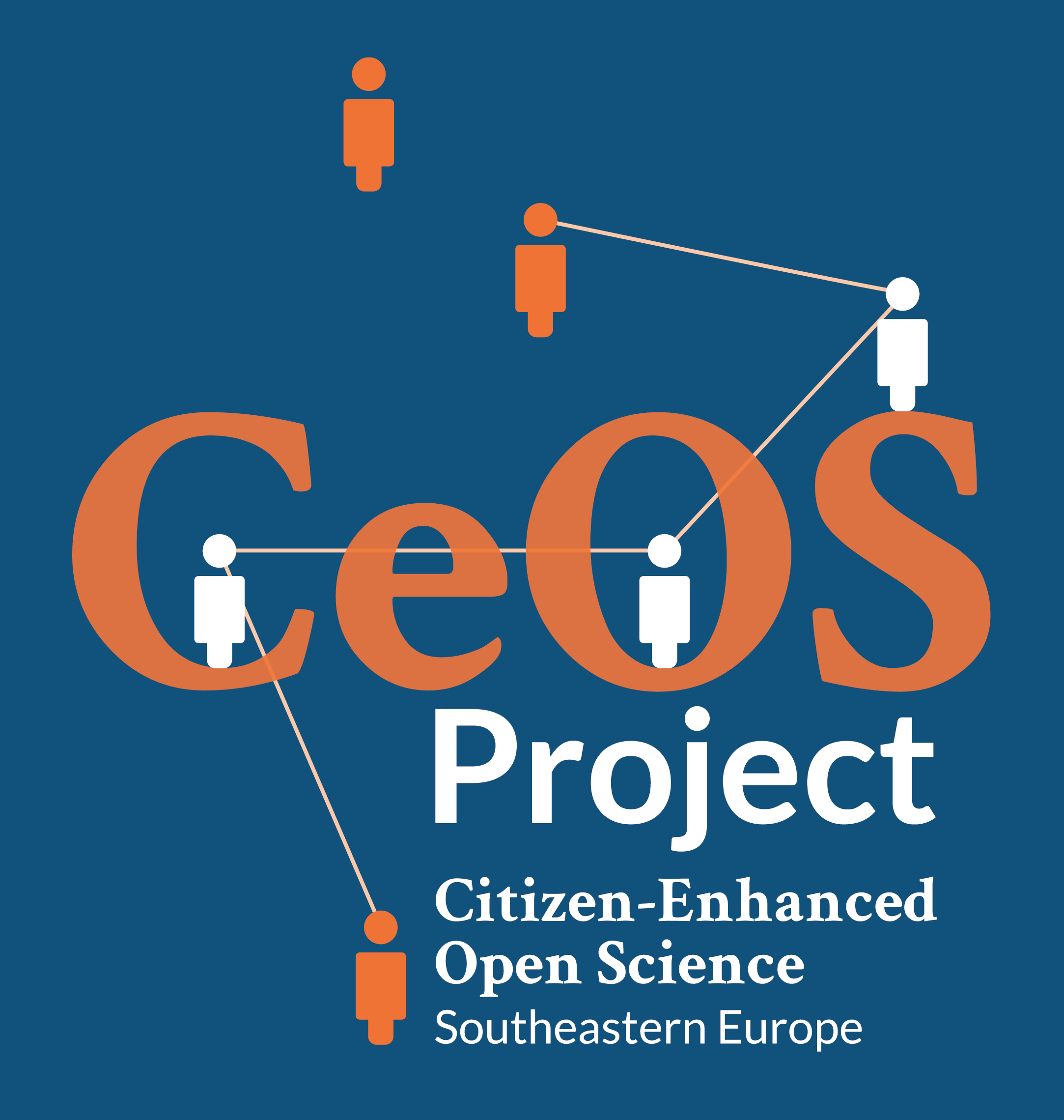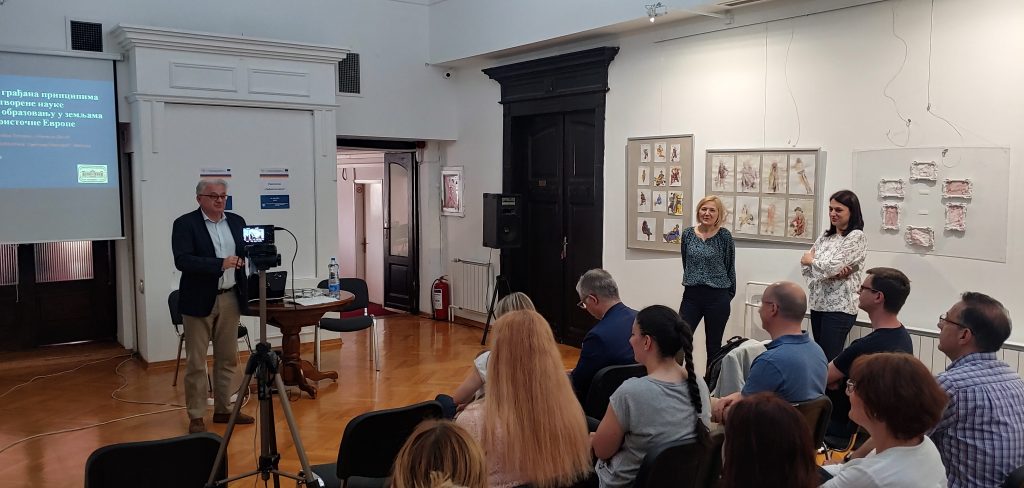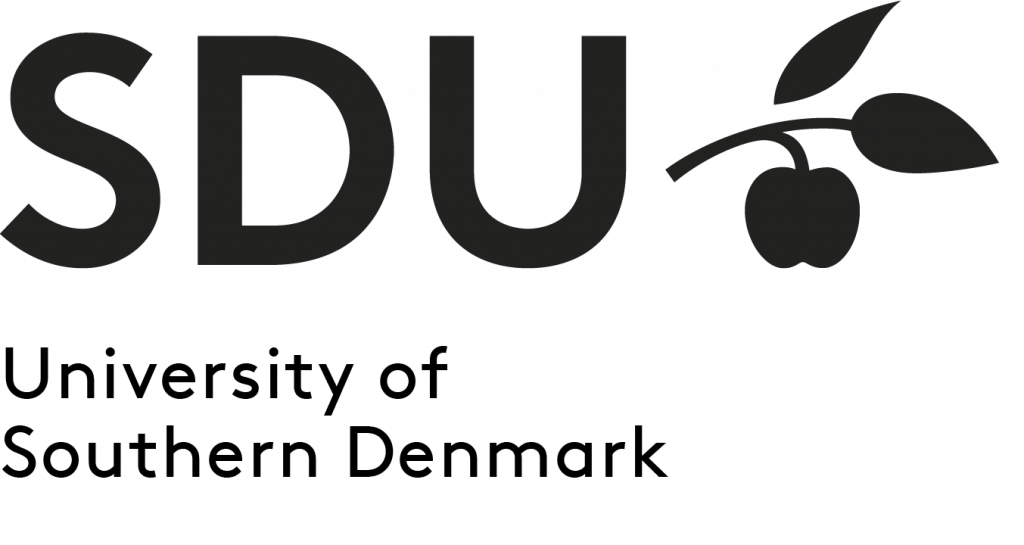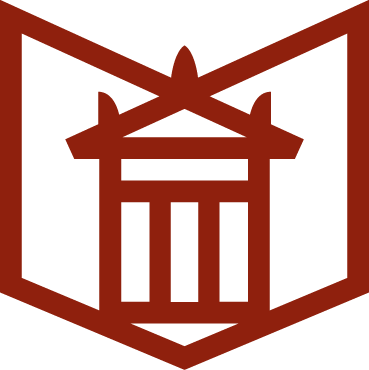The CeOS_SE Project continues to pilot Citizen Science in South-eastern Europe by organising activities, together with public libraries, in our partner regions. The latest activities took place in Turin, Italy and Belgrade, Serbia.
The University of Turin organized a two-day training event on June 7th and 8th: Citizen science, per una ricerca aperta a tutti. Un dialogo con cittadini, biblioteche ed enti di finanziamento [Citizen science, for research open to all. A dialogue with citizens, libraries and funders]. The event was a collaboration between the CEOS_SE project and the COESO project, the Citizen science “branch” of OPERAS, the EU infrastructure for Open Science in the Humanities and Social Sciences. From the planning phase, the approach was to create synergies with other players (like COESO and CSI, the soon-to-be association Citizen Science in Italy at a national level and with public libraries in Turin at local level).
During the first day, participants listened to Andrea Sforzi, the leading expert on Citizen Science in Italy, give an overview of what Citizen Science is (and what it is not), and present good practices on successful CS projects. Alessia Smaniotto then focused on Citizen Science in the Humanities and Social Sciences, highlighting the differences and common ground, and Michele Riccardi presented a practical implementation of Citizen Science on crime data reused by journalists, in one of the COESO pilot projects. Citizen Science was ‘collocated’ in a local framework, with activities carried out by the public libraries in Turin presented, and the “participative conferences” organized by Centro Scienza. The interests of citizens before the conference were gathered, and the activities attempted to address them. Camelia Boban, a Wikimedia/Wikipedia activist, concluded the event with an engaging talk on how as citizens we can all contribute to knowledge creation: as citizens, it’s our duty. The video recording and the slides of the presentations are available on the conference webpage.
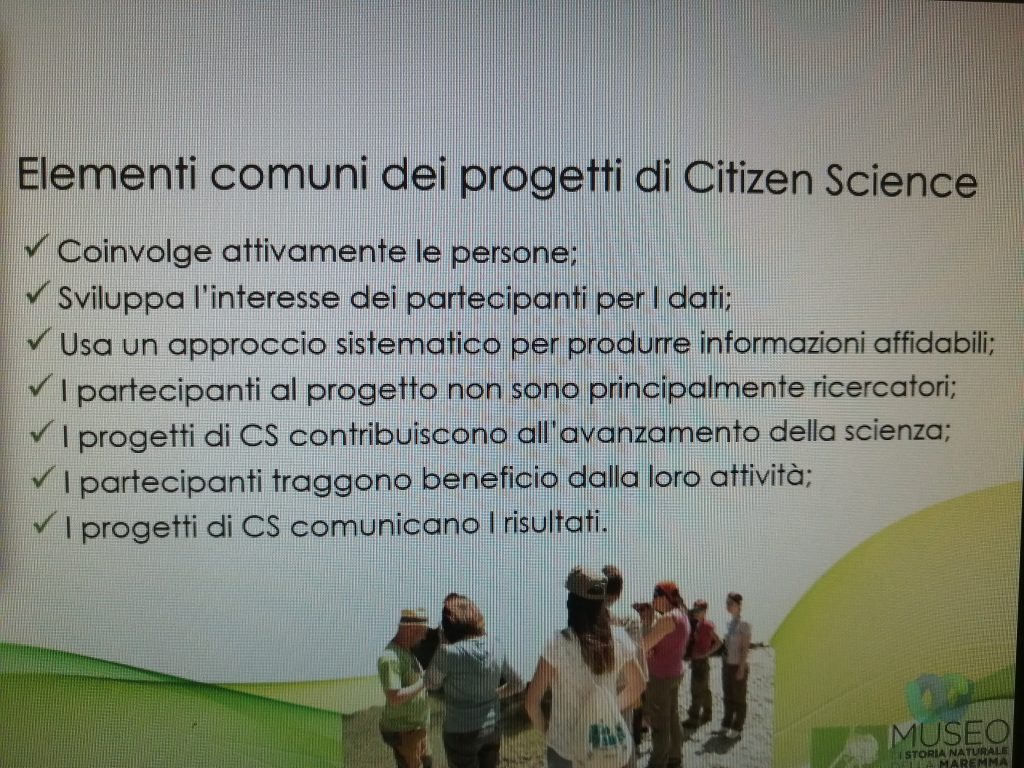
The workshop on 8th June was organized following a template by ECSA – European Citizen Science Association, and was targeted mostly to funders.
Earlier this year, another Citizen Science pilot activity took place in Belgrade. On 24th May 2022, University Library “Svetozar Marković” organized a workshop dedicated to Citizen Science for interested librarians, researchers, and students. The workshop’s aim was to introduce participants to the concept of Citizen Science, promote the principles of Open and Citizen Science, and give concrete examples of OS/CS implementation.
Lecturers at the workshop were given by, in addition to librarians from the University Library “Svetozar Marković”, experts from the Association of Serbian Genealogists “Poreklo”. Librarians and project members Dr. Aleksandra Trtovac and Nataša Dakić presented the concept of the project “Citizen-Enhanced Open Science in Southeastern Europe Higher Education Knowledge Hubs (CeOS_SE).
Branko Todorović and Dragan Obrenović from the Association of Genealogists then presented the work of their society. This group of citizens from Belgrade researches the origin of Serbian surnames and, in a broader sense, the origin of Serbs as a whole. The society was founded in 2012 and in the last nine years it has launched several projects of national importance.
Within the Workshop on Citizen Science, specific topics on research related to the origin of Serbian surnames and Serbian DNA were presented, with aim of attracting more volunteers to engage in this field of research.
